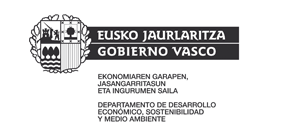Last year on the 21st of October the Basque cluster policy celebrated its 25th anniversary (Basque Cluster Day). This jubilee, if speaking about marriage, would be marked as silver and at the same time could also mean an excellent second place medal in the championship.
Indeed, in brief the findings from my latest research on comparing the Basque and Upper Austria cluster policies showed that, although in the Basque Country the average growth rates (based on Gross Domestic Product (GDP) per capita, OECD 2015) since 1991 to 2011 were slightly lower than overall in Spain (2,0% to 2,28% respectively), since 2000´s and despite years of the financial crises the region solidly maintained the leading second place after Madrid. Moreover, the overall GDP per capita increase from 1995 to 2011 was the highest among other Spanish regions (1,43%).
In addition to the above the short review of several economic factors related to economic growth of the Basque Country has also indicated their improvement compared to the first years of the cluster policy. These are often not only one of the highest in Spain but also within the countries of the European Union (EU). For example, progress is seen in increase of labour costs, high rates of labour with the post-secondary education, the drop of unemployment rate, and significant growth in number of patents and / or employment in research and development sector. The growth in clusters (based on the employees’ database from Eustat and establishments - from European Cluster Observatory) has been positive in most of the priority sectors, e.g. in metal and manufacturing, automotive, production technology, oil and gas, aerospace, biotech, transport / logistics and agricultural products.
Since the beginning the Basque cluster policy has passed mainly through three periods of cluster policy 1) 1989 – 1999: Grounds building (identification and establishment of the key clusters), 2) 2000 – 2005: Improving and polishing (revision of the initiated clusters, refining the operationalization of the initiated associations), 3) 2006 – 2013: Giving new opportunities (reviewing the sector performance and definition of pre-clusters), and as of 2013 entered in a new period of cluster re-management boost. The latest revitalization of the cluster policy is still in process and with good regional strategic incorporation should successfully reach the “gold” anniversary and first place medal in the next 25 years.
Keeping constant policy revitalization, evaluation and modification is generally necessary (e.g. as mentioned in one of Orkestra´s paper on La evaluación como herramienta para transformar las políticas de competitividad) and particularly important for the Basque Country, taking in account that in comparison to leading industrial and technologically strong regions of EU15 the Basque region in number of key innovation and R&D related indicators is still underperformed: Moreover, out of around 22 only 6 clusters (business services, construction, metal manufacturing, production technology, maritime and power generation and transmission) are star-marked by the European Cluster Observatory.
In light of the above and with fresh findings from the conducted research, I would like to share some recipe-ideas for the good cluster policy making.
At first, it´s central to realize, that cluster policy making is a process, which should repeatedly include following stages: 1) discussion initiation, 2) economy & cluster analysis, 3) policy review, 4) policy development, 5) policy implementation, 6) evaluation and monitoring and 7) policy improvement. All stages are considered equally significant and important for the effective cluster policy making. The exclusion of one might result in a drastic underperformance of the whole policy. The process and stages are in detailed discussed in the earlier paper on Comparing Cluster Policies: An Analytical Framework.
Secondly, the systematic inclusion of the following six components is essential.
There is a need to involve active, risk taking and passionate (1) people in the coordination and implementation of cluster policy, especially on cluster association level. Participation of people with these characteristics can motivate, convince and engage different groups of actors. This implies also constant upgrade of the institutional capacity building particularly related to cluster policy and cluster policy making. To innovate, policy making institutions should always be on the frontline of economic, policy and innovation related trends.
These institutions and actors should be aware that achieving policy goals and economic progress can only be realized in the environment of (2) trust and transparent relations. Further to the above close communication between government/ administration and research institutions/ universities is required, in particular for harmonization and optimization of resources and fluency of knowledge exchange.
Policy makers should give more attention to systematized, organized and platform based approaches to (3) evaluation, monitoring & self-learning. This gives a better and clearer vision of processes and helps to realize the gaps, where the introduction of changes is needed.
Pro-actively aligning of cluster strategies with (4) global, regional and national policies sets an important harmonization approach for regions and offers an extensive guidance and financial support. Only by being clearly focused and incorporated into the overall strategy of the territorial / regional development can cluster policy make the full-scale contribution to strengthening regional economic development and competitiveness.
Cluster policy should be seen through a (5) long-term policy planning and vision, which is to be permanently adjusted and modified to existing needs of businesses and global economic trends.
Policy makers can act on their own, but their hands and mind would be limited without the support of the private sector and academia. Therefore, only through (6) triple/ quintuple helix participation (from government, research and firms to civil society inclusion in a suitable environment) of regional actors a coherent impact of cluster policy can be achieved.
Finally, I suppose, it´s necessary to realize that although the number of “recipes” can be numerous, they should never be followed in blue-print. Essential is to realize that all components of economic system are in the process of constant change, and so should be the policies. The task of policy makers is to make them work, whether with these ingredients or additional ones. What about your good cluster policy ingredients/ receipts?

Anastasiia Konstantynova
Anastasiia Konstantynova holds a Master Degree in International Relations and Economics from the Catholic University Eichstaett-Ingolstadt (Germany), where in collaboration with Orkestra-Basque Institute of Competitiveness she has also written her Ph.D. dissertation on comparative analysis of cluster policies and economic development of the Basque Country and Upper Austria. During her Ph.D. she has gathered broad international practical experience both in private and public sectors in Germany, Austria and Ukraine.More articles by this author
-
2016-09-26
Learning from others: Malopolska región winner of the European Entrepreneurial Region 2016 award -
2016-05-18
Culture and economic development, what is the link? Three examples from the Basque Country -
2014-03-25
Cluster building – recognizing the role of international non-government organizations (NGOs) -
2013-05-19
Supporting cross-border inter-clustering, why matter? -
2012-12-12
Creating innovation – “talent” or a skilled team?














